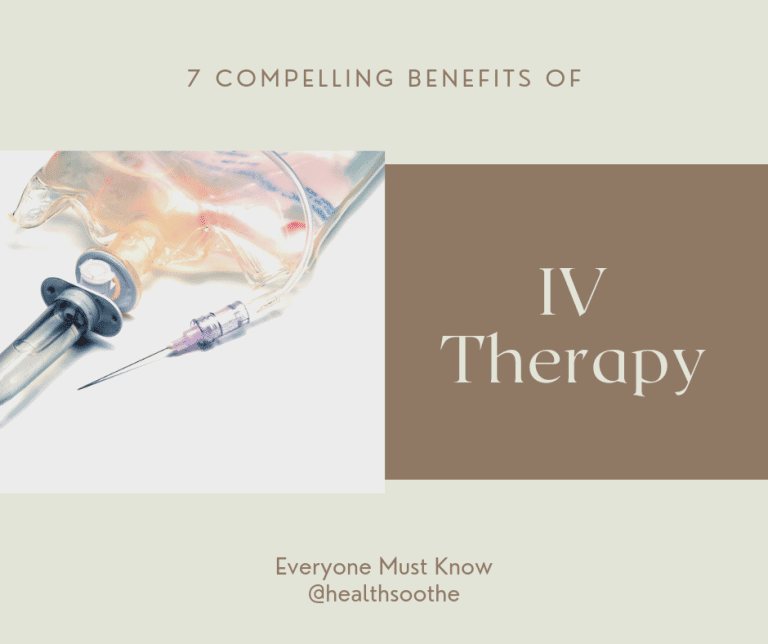Share this post
Intravenous Vitamin Infusions: Are They Worth It?
In recent years, a growing health trend has been taking the wellness world by storm: intravenous (IV) vitamin infusions. Hollywood celebrities, professional athletes, and even busy executives are endorsing these treatments, promising increased energy, enhanced immunity, and overall improved health. Let's dive into the science and reality of intravenous vitamins, specifically vitamin C intravenous injection, to see whether they're truly worth it.
A significant portion of the IV vitamin therapy conversation centers around high-dose vitamin C infusions. This is primarily because vitamin C is so important for our bodies, supporting collagen creation and the immune system. One would wonder, given its significance, why we shouldn't supercharge our bodies with more of it.
When consumed orally, our bodies can only absorb a limited amount of vitamin C at a time, with excess being eliminated. This absorption limitation does not apply to IV administration. By bypassing the digestive system, intravenous injection allows for a much higher concentration of vitamin C in the blood, potentially amplifying its benefits.
What Are Intravenous Vitamin Infusions?
Intravenous vitamin infusions, also known as IV vitamin treatment, use an IV drip to provide vitamins and minerals directly into the circulation. Bypassing the digestive system, this technique enables almost full absorption. The most popular vitamins to be infused might include vitamin C, B vitamins, magnesium, and glutathione.
The Case for IV Vitamin Therapy
The use of intravenous vitamin treatment is justified by the notion that nutrients are more effectively absorbed when given intravenously (IV) as opposed to orally. They go on to say that those with malabsorption problems, including those with celiac disease or Crohn's disease, benefit from IV treatment.
IV vitamin treatment frequently includes the use of high-dose vitamin C. A few studies have suggested that intravenous vitamin C administration may offer some health advantages over oral vitamin C therapy.
According to some research, high-dose intravenous vitamin C may also enhance quality of life in cancer patients by lowering symptoms including fatigue, sleeplessness, and appetite loss. To bolster these findings, further thorough investigation is needed.
The frequency of IV vitamin infusions depends largely on individual health goals and conditions. While some people choose to get infusions every week, others might want to have them less regularly. There is no one-size-fits-all method for frequency, so you should talk about it with a medical expert who can provide you advice depending on your particular health circumstances.
The Criticism
Despite its rising popularity, IV vitamin treatment has encountered some resistance from the medical establishment. Many medical experts think that a balanced diet delivers an appropriate dose of vitamins for the majority of people. They underline the fact that some vitamins and minerals can be detrimental in big doses and that mineral overload can happen from consuming too much of specific minerals.
Although IV vitamin treatment can offer a direct pathway for nutritional delivery, due to its efficacy, expense, and possible dangers, it may not be the best option for everyone. It is essential to view this therapy as a component of a larger health strategy rather than as a magic cure.
Safety Concerns
Safety is another area of concern. While generally considered safe when administered by a qualified health professional, IV therapy can carry risks. Complications can range from mild side effects like bruising and inflammation at the injection site to more serious issues like infections or an allergic reaction.
Furthermore, it's crucial to note that the FDA does not regulate the dosage or administration of IV vitamin therapy, leaving a wide margin for error and potential misuse.
Inclusion in a Holistic Health Strategy
A balanced mix of vitamins and minerals are necessary for the body to operate at its optimum, which is why IV vitamin therapy is commonly advertised as a part of a holistic health approach.
These infusions shouldn't be used as a replacement for a healthy diet and an active lifestyle, even if they may be able to correct vitamin deficiencies and improve overall health. The cornerstones of any health and wellness strategy should still include regular exercise, enough rest, stress reduction, and a diet high in fruits, vegetables, lean meats, and whole grains.
If you're thinking about IV vitamin treatment, speak with a medical expert first. Taking into account your individual health requirements and medical history, they can advise you on whether this therapy would be good for you. To reduce potential dangers, be sure that all therapies are given by licensed medical experts in a sterile environment.
Conclusion: Is it Worth it?
The value of IV vitamin treatment ultimately relies on the health requirements and conditions of the individual. The majority of people can satisfy their nutritional demands and preserve excellent health by eating a balanced diet, staying hydrated, and engaging in regular exercise. However, certain people with specific medical issues may benefit from this treatment.
Consult your doctor before deciding on IV vitamin treatment so that you may make an educated choice. Despite the fuss, remember that leading a healthy lifestyle, maintaining a balanced diet, exercising frequently, and getting adequate sleep are all essential. Each is necessary for maintaining our health and wellness, and together they provide the strongest defense against sickness.
In the end, IV vitamin infusions might not be a cure-all for everyone, but they might have advantages for some people. These therapies should be carefully studied, comparing the possible advantages against the dangers and expenses, just like any other health intervention.

Isreal olabanji a dental assistant and public health professionals and has years of experience in assisting the dentist with all sorts of dental issues.
We regularly post timely and trustworthy medical information and news on Fitness, Dental care, Recipes, Child health, obstetrics, and more.

